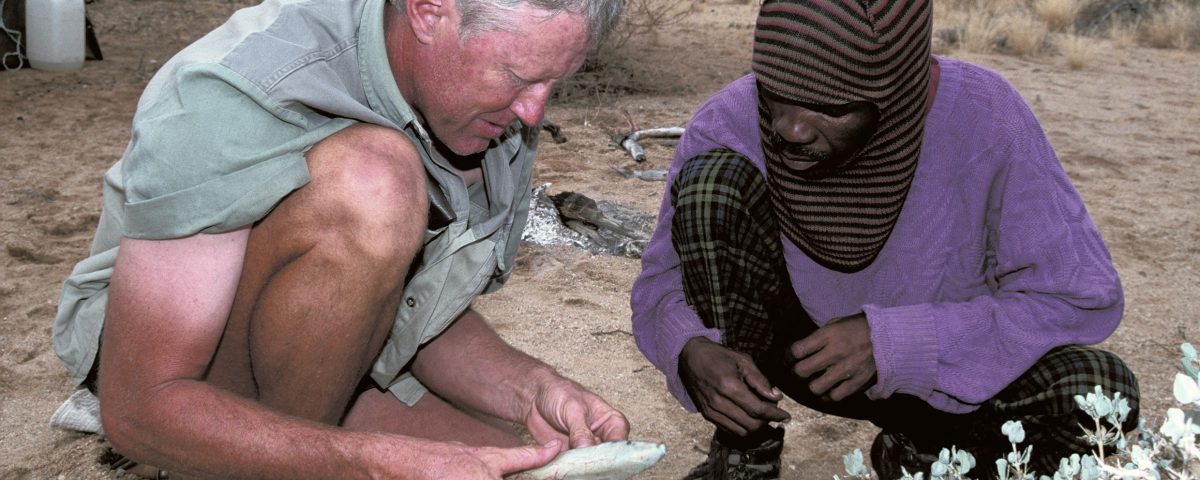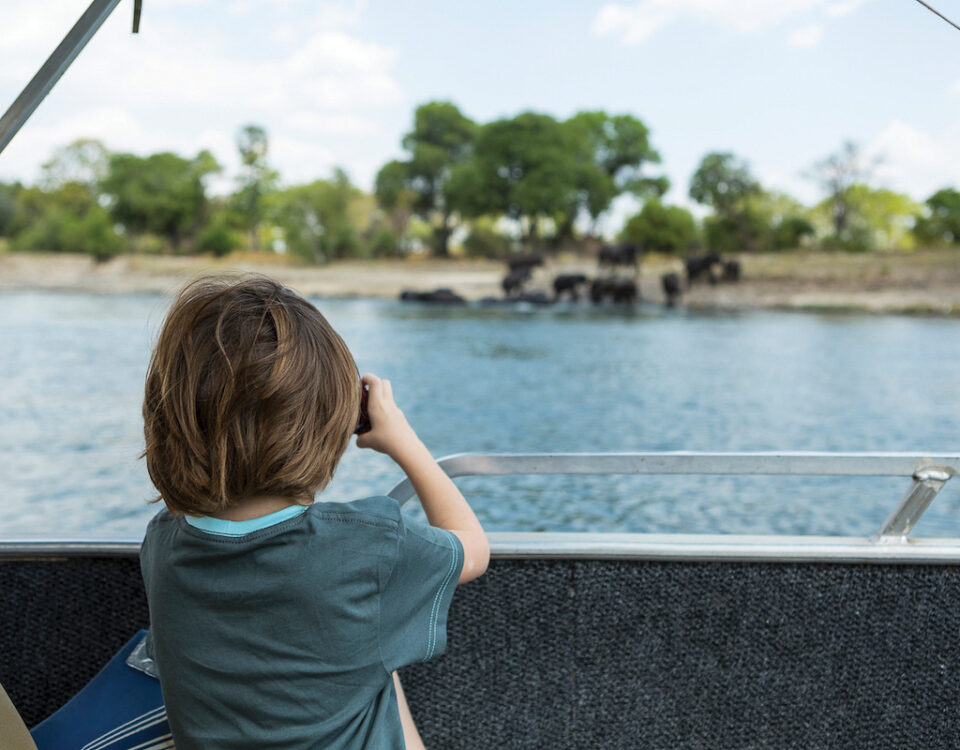
Following the big conversations, what future for conservation?
August 22, 2017
Shipping of hunting trophies – The last link in the chain
August 23, 2017T here is a natural economy in the bush. When the breaking of a branch, a deep bark or a few whispered words can alert others to your presence, there is a need for an economy of sound. Movements are restrained because you never know when reserves will be needed for a long trek out of the bush; and even amongst the toughest, most seasoned hunters there is an economy of emotion, which doesn’t mean you don’t feel the pain, the heat or the precise moment when life ends, but it means you understand your place in the natural cycle of life. This economy takes time to develop. It is born of patience and understanding, honed through years of experience. Those who best exercise these natural economic values are those who have the most respect for the natural world.
One premier example is Kai-Uwe Denker, a principled, ethical hunter who “walks the talk.”
Those who know him best say that you should listen closely to him, as he never wastes words. They would also follow him into any situation because he is a student of the wild, who despises modern technology, as he believes that bushlore should be learned through sweat, endurance and experience. ere are many who would say that he shuns awards, because to him conservation and ethical hunting are not about a person but rather a set of values, and to live a life in nature guided by strong ideals is reward enough.
And yet, as someone who embodies the principles of sustainable use of natural resources, which form the foundation of Namibian conservation efforts, and as one of Namibia’s foremost ‘ambassadors’ of well-regulated, ethical hunting, which makes tangible, well- documented conservation contributions, Kai- Uwe Denker is the 2016 Conservationist of the Year (whether he likes it or not!)
A third generation Namibian, Kai-Uwe grew up on a farm north-east of Windhoek. From an early age his life revolved around nature and wildlife. As a child he was always in the bush, mostly exploring on his own, learning the ways of the animals and the changing seasons. Even now, as a curious adult, he is active in the bush every day, sharing this natural life with his wife and children, and with clients who return to hunt with him time and again.
A registered professional hunter (PH) with a big game license for nearly three decades, Kai-Uwe built his own hunting safari business, specializing in indigenous big game hunting, always on foot, in true unfenced wilderness areas all over Namibia.
As a quiet, consistent and disciplined leader, Kai-Uwe inspires others in the field. ere are stories about how young hunting apprentices were not able to keep up with him in the bush on hunts, even though he was ten or 15 years older than them, and even more stories about how clients worked hard to maintain Kai-Uwe’s standards, including a few unfortunate souls who were caught sneaking a smoke and thus compromising their hunting fitness!
He was one of the first hunting operators to work in communal areas prior to conservancy development, and though at times he has been critical of the communal conservancy movement, he has worked with numerous conservancies and local communities for over 20 years. Over the years, he has made a commitment to training staff and supporting previously disadvantaged Namibians to become established in the hunting industry.
Since the early 1990s, much of Kai-Uwe’s passion has been put into the Erongo Mountain Rhino Sanctuary Trust, an example of how private landholders can achieve conservation at scale through collaboration. As a visionary group they took down fences, linking a network of farms to allow wildlife more land to roam. ey also reintroduced black-faced impala and black rhino back into their former stronghold.
In an effort to move the target of trophy hunting away from ‘the biggest is best’ to mature trophies, Kai-Uwe established the Erongo Verzeichnis for African Game Animals, an alternative measuring and evaluating system for hunting trophies, including specifications on hunting areas – natural and open systems. is concept is based on ideals that are not always shared by segments of the broader industry, and it received some criticism but also a great deal of recognition and support.
The protection and conservation of vast natural habitats and the naturally occurring fauna and flora is the primary aim of this new system in which hunting and the hunter are part of the natural ecosystem.
Kai-Uwe has always been an active member of Namibia’s hunting fraternity, serving on various NAPHA committees and as President of NAPHA since December 2012. Change and leadership are seldom without controversy and this is something that Kai-Uwe has never shied away from. As NAPHA President he has been willing to confront issues, to analyse the industry, to look at weaknesses and strengths, and to take new directions.
In these testing times, when trophy hunting is under attack from various international concerns, Kai-Uwe has worked to take the role of NAPHA as a regulating body to a higher level reinforcing the importance of NAPHA and the hunting sector as a vital link between conservation and land use that enables well- regulated and sustainable use of wildlife.
Without NAPHA there would be no way to create professional standards; and in the current conservation and hunting climate there is an ever more urgent need to ensure that these standards are strictly applied across the industry.
The industry needs to look no further than to Kai-Uwe as an example of an ethical, experienced and respected hunter. He represents part of Namibia’s international conservation credibility through a pragmatic conservation approach based on scientific principles and field knowledge, and he does it not for awards but for a lifetime of passion, idealism and the deep commitment that he’s made to hunting and conservation.
This article was first published in the HuntiNamibia 2017 issue.
A MESSAGE FROM NAPHA VICE PRESIDENT DANENE VAN DER WESTHUYZEN
What is a true conservationist? In our country it is imperative that we understand this concept, as our livelihood depends on sustainable use. As hunters we understand this term and, as one year of drought follows the next, we ask ourselves how to preserve our country’s most valued assets: our nature and wildlife.
While we have grown to love this scorched earth almost as much as we rejoice at the sound of thunder, today there are other outside factors that threaten our wildlife, our environment and our profession. To conserve our natural world, and in turn to conserve and defend ourselves as hunters, is a very tall order these days.
John James Audubon stated that a true conservationist is a man who knows that the world is not given by his fathers; it is borrowed from his children.
THis statement guides many of us, while Kai-Uwe Denker has made it his life’s purpose.
Kai-Uwe Denker is a name that resonates deeply throughout our country and the international hunting and conservation community.
As a young PH and manager, when I heard his name mentioned around the camp re, the words seemed to hang in the air, creating a sense of mystery and awe. While stories of his exploits were being told, they all invariably had the line, “ e German with the headstrong will, boundless determination and bad people skills.”
I will never forget the first time I heard Kai-Uwe give a talk. It was at one of NAPHA’s annual general meetings. I quickly realized that the vision that I had of him was skewed. He was not a hero or the strong, untouchable man that was painted in my mind’s eye. He was just a man, speaking of his love for his daughters with their “bunny-hugger” qualities. A man visibly and relentlessly fighting to preserve and conserve what is dear to him. Nature. Because every single thing that is important to him encompasses nature.
Since then I have been fortunate to have spent many hours with him. I could talk with him for years, every day, learning something new, while at the same time I feel like I have known him forever.
He once said that people aren’t necessarily tough because they are hunters, but that these days it is tough to be a hunter. is statement doesn’t rest well with a young and enthusiastic hunter, but it is true. Even though
he sometimes doesn’t act diplomatically, he delivers a straightforward message. Kai-Uwe faces controversies and continues to do the right thing, and in doing so, he inspires the people around him.
His passion, idealism and unflinching honesty have sculpted him into a true conservationist. He lives it every day. He breathes it, speaks and manifests it.
By not thinking of his own self-interest, but rather of the future of our profession and our wildlife, he instills an understanding in each of us as to what it means to be a true conservationist.


